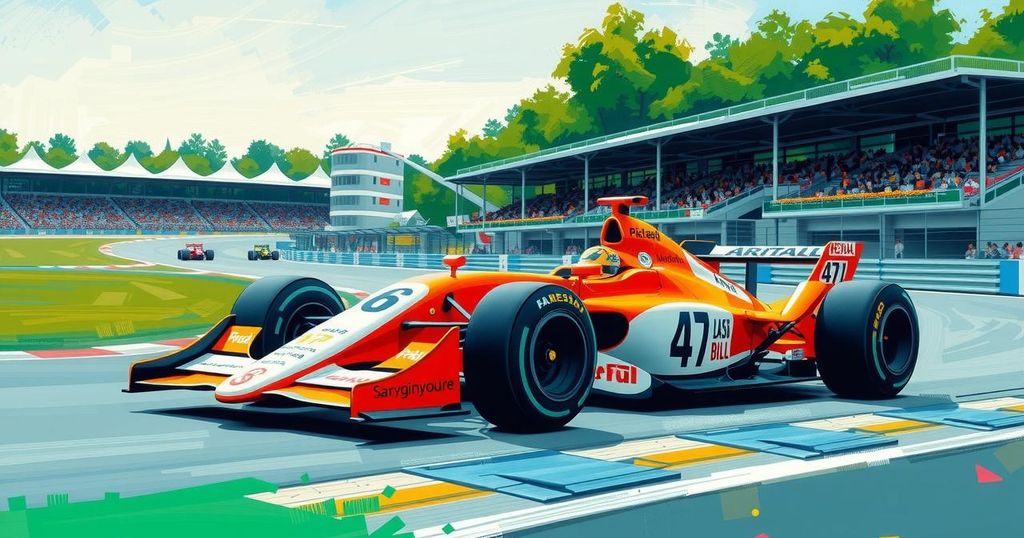South Africa’s Bid to Host Formula One: A New Era for African Motorsports
South Africa is vying to host a Formula One Grand Prix for the first time in over 30 years, with competition between Cape Town’s street circuit and Kyalami race track. A decision will be made by a government committee led by Sports Minister Gayton McKenzie. Prominent support includes Lewis Hamilton, asserting the need for Africa’s inclusion in the racing calendar. The bid’s success could signify a pivotal moment for motorsports in Africa amidst expanding global F1 ambitions.
In a significant endeavor, South Africa is working towards reviving Formula One racing on the African continent after a lapse of over 30 years. The competition for hosting this prestigious event is primarily between two locations: a street circuit in Cape Town and the renowned Kyalami race track situated outside Johannesburg. The decision regarding the winning bid is expected to be made by a committee led by South African Sports Minister, Gayton McKenzie, in the third quarter of the current year.
Minister McKenzie expressed strong optimism regarding South Africa’s potential to host the Grand Prix, stating, “The Grand Prix is definitely coming in 2027, no doubt about that.” The Kyalami circuit is steeped in history, having previously hosted iconic races and drivers, and features a track decorated with the South African flag.
The last time Formula One raced in Africa was in 1993, just prior to the historic democratic elections that marked the end of apartheid. The last race winner on African soil was Alain Prost, who drove for Williams.
Support for the bid has been bolstered by prominent figures such as seven-time world champion Lewis Hamilton, who advocates for the inclusion of Africa in the F1 calendar. Hamilton emphasized, “We can’t be adding races in other locations and continuing to ignore Africa.” The current leadership of Formula One aims to expand its reach globally, making a return to South Africa significant for the sport’s legacy.
Historically, South Africa has seen remarkable moments in Formula One, highlighted by legendary figures such as Jody Scheckter, the only African world champion, and events surrounding Niki Lauda’s famous protest in 1982. The potential for hosting an F1 race may not conflict with other venues, as the calendar is continually evolving.
The financial implications of organizing a Grand Prix may not deter participation, given that countries often see strategic benefits in hosting significant sporting events. Additionally, the Kyalami track only requires a Grade 2 certification and certain enhancements to meet the standards for an F1 race.
Cape Town’s proposed street circuit, having hosted a Formula E event recently, is positioned advantageously near the iconic Lion’s Head mountain, enhancing its appeal. This urban circuit could potentially rival existing prestigious venues; however, competition may also arise from nations like Rwanda, which has shown intent to develop its own F1 bid.
Despite the rivalry, the idea of multiple races being organized on the African continent remains feasible. Tensions may arise from Rwanda’s involvement in regional conflicts, potentially affecting its aspirations, yet the South African sports minister questions the limitation of only allowing one African race, advocating for broader inclusion.
In summary, South Africa’s bid to host Formula One signals a potential resurgence of motorsports on the African continent, with hopes of returning the iconic event to its historic venues. The competition primarily lies between Cape Town and Kyalami, while notable support from figures such as Lewis Hamilton strengthens the initiative. As this bid progresses, strategic implications and regional rivalries play significant roles, making the outcome of the decision critical for the future of F1 in Africa.
Original Source: www.aljazeera.com




Post Comment